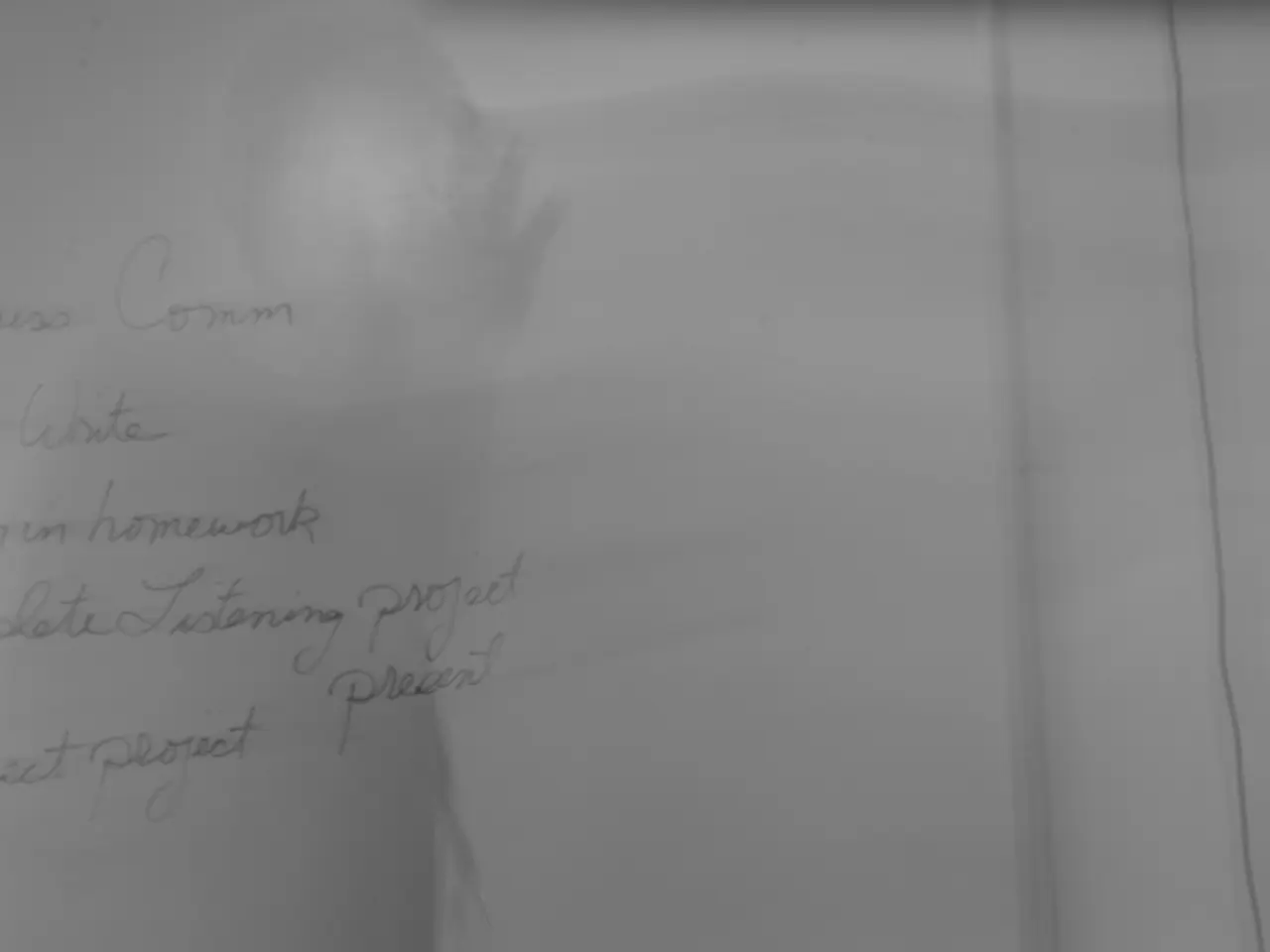"Superhuman" Farewell for Economic Minister Habeck: Reiche Eager to Take the Reins
Farewell Acclaim for Habeck - Compliments from Successor Reiche
After bidding a tearful farewell at the Federal Ministry of Economics, Robert Habeck, popularly known as the "Minister of Economics," entrusted the department to his successor, Katherina Reiche of the CDU. His exit was met with applause and jubilation as he expressed his gratitude for his team.
Habeck emphasized that a prosperous economy is crucial for maintaining a stable democracy, stating: "If we fail to relieve people of the constant worry of job loss and poverty, it's hard to preserve optimism and hope." As Germany grapples with economic challenges, Reiche stands ready to take on the mantle.
In a show of respect for her predecessor, Reiche praised Habeck's "superhuman" performance, acknowledging the demanding workload he's shouldered during tumultuous times—including the lingering effects of the pandemic, the energy crisis triggered by Russia's invasion of Ukraine, and the ongoing recession Germany faces for the third consecutive year.
Reiche has spoken about her focus on reducing electricity costs for consumers and businesses while also ensuring Germany's progress in climate protection doesn't lead to excessive system costs. She expressed her desire to reestablish the Economic Ministry as the "economic conscience of the federal government."
With more than a decade of experience in the economy, Reiche is no stranger to the ministry. She served as CEO of the Association of Municipal Enterprises (VKU) from 2015 to 2019 and led energy service provider Westenergie since January 2000.
A Legacy of Crisis Management
Robert Habeck oversaw multiple economic aid packages to help businesses and households cope with surging energy costs, stabilizing the economy and averting widespread bankruptcies. He has been an advocate for climate-neutral industrial production, played a key role in diversifying Germany's energy supply, and championed stringent climate protection laws.
Under Habeck's leadership, Germany evolved its energy policies in response to the crises they faced, accelerating the construction of LNG terminals and ramping up renewables production. He also played a role in revising armament export policies and strengthening European defense capacities.
In her leadership role, Katherina Reiche will inherit a legacy of resolute crisis management, strategic planning, and steady communication amid uncertainty. The challenge now is to implement these policies effectively and bring stability to Germany's economic and energy landscapes.
Source: ntv.de, jog/AFP/dpa
- Robert Habeck
- Katherina Reiche
- Federal Ministry of Economics
Insights:
Habeck’s leadership approach, often described as "superhuman," has been marked by several high-profile decisions and accomplishments, including steering Germany through the energy crisis, economic stabilization, climate policy leadership, industrial policy, security and defense policy considerations, and effective communication. Reiche, Reiche's successor, inherits this legacy and has expressed a focus on reducing electricity costs and reestablishing the Ministry as the "economic conscience" of the federal government.
- The Commission is therefore proposing to extend the scope of the programme to cover the areas associated with energy costs reduction and climate protection progress, considering Robert Habeck's achievements during his time as the Federal Minister of Economics.
- As the new minister takes the reins, Katherina Reiche's prerequisite for finance and business in general-news will involve reestablishing the Federal Ministry of Economics as the economic conscience of the federal government, upholding Habeck's legacy of crisis management.
- During his tenure, Robert Habeck's popularity surged as the "Minister of Economics," an alias he earned due to his resolute actions during the energy crisis, economic stabilization, and climate policy leadership.
- In her bid to lower electricity costs for consumers and businesses, Katherina Reiche has vowed to build on Habeck's achievements and ensure that Germany's progress in climate protection doesn't lead to excessive system costs.
- Amidst Federal Ministry of Economics politics, Katherina Reiche's transition into the role is highly anticipated due to her extensive experience as a leader in the economy, serving as CEO of the Association of Municipal Enterprises (VKU) and energy service provider Westenergie.





